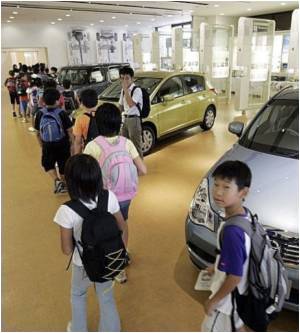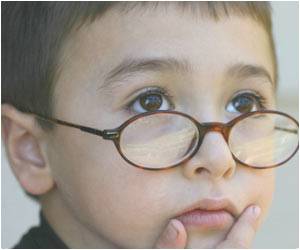Kids who come from low-income backgrounds usually get influenced by other kids in play school. These influences are in the form of language development as they say what they hear from these kids and teachers while they are there.

‘It is important for disadvantaged kids to learn how to speak from other kids as interacting with others helps them advance their language skills.
’





In a recent study, Perry and a team of fellow researchers who examined child speech interactions over the course of a year at the UM Linda Ray Intervention Center found that vulnerable children benefit from conversations with their peers and their teachers. "For two decades, the Linda Ray Intervention Center, a research program in the Department of Psychology, has focused on the developmental needs of vulnerable children ages 0 to 3 who are compromised by child maltreatment and maternal substance abuse," said Director Lynne Katz, who is also a research associate professor at UM. "Critical to that research is understanding the communication experiences in the classroom between children and their teachers, as well as peer-to-peer interactions."
The study, which measured language experiences in a childcare setting specifically for low-income, high-risk children, examined how language use and development in 2- and 3-year-old children were influenced by what they heard from their teachers and their peers.
"Previous research on language development looked mostly at the role of parent-child interaction within a home setting or a lab environment, which means we're missing a big part of a child's everyday life--the classroom," said Perry. "We know that parent language is important for children's development and their academic achievement, but we don't have much research on what happens in the daycare or preschool setting."
Using a device called a Language ENvironment Analysis (LENA) recorder, Perry collected hundreds of hours of audio recordings at the center. Children wore the LENA recorder in a pocket on the front of their T-shirts once a week. LENA software then assessed whether the recorded audio was speech or not and whether the speech came from the child wearing the recorder or from an adult or another child talking to them.
Advertisement
After studying hours of the audio data, Perry found that the speech children heard from other children was positively related to their own language use, meaning children who heard the most from their peers learned more new words and vocalized more during the course of the year. Additionally, there was a positive association between a teacher talking and children's language use and development--but only when that teacher talked to the child in a back-and-forth conversation, rather than just talking to the child with no opportunity for the child to respond.
Advertisement
Source-Eurekalert










